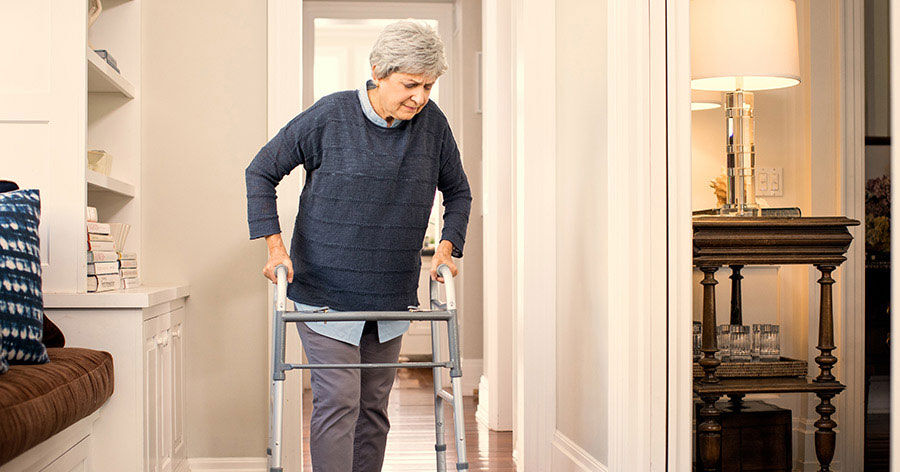Advice for Preventing Falls to Improve Senior Care
Fall prevention is a necessary piece for effective senior care plans and safer daily living. Physical changes can increase most falls, health conditions, medications used to treat them, and commonly injure the elderly. These six fundamental steps from EasyLiving can help prevent falls and a fear of falling.
1.) See a Doctor & Be Prepared
- What to Bring? – Bring a list of your current prescriptions, OTC, and vitamins to your appointment. Note any medication interactions and side effects that you have, as they can cause falls. Weaning off sedatives and antidepressants may help to prevent falls.
- Are You Down? – Notate any falls. Prepare to recount instances when you nearly fell but were caught or grabbed in time. These details may help your doctor prevent future.
- Conditions That Can Cause a Fall – Some eye and ear problems can cause balance issues and increase the risk of falling. Do you feel dizziness, joint pain, shortness of breath, or numbness in your feet and legs while you walk?
2.) Move Your Body
Exercise can help prevent falls. Try walking, swimming, tai chi, or a gentle workout with graceful movements if your doctor permits. Exercising strengthens muscles, increases flexibility, and improves the overall quality of life.
If you have a fear of falling, make sure to tell your doctor. They may recommend supervised workouts or refer you to a physical therapist for senior care. It can help your balance, flexibility, muscle strength, gait, and general peace of mind.
3.) Wear Shoes
Wear comfortable shoes with nonskid soles. Comfortable shoes may also benefit arthritis.
4.) Address Home Dangers
Look around your home, as every room in your home poses a risk for falls.
- Clear routes of boxes, newspapers, and wires
- Clear the way for more seating and less clutter
- Tape loose rugs with double-faced tape
- Keep clothes, dishes, and food handy
- Shower with nonslip mats and a bath seat
5.) Light Your Home
So you don’t trip over things in the dark, also:
- Place lamps in rooms
- Discourage blocking light switches
- Make sure to turn on lights
- Have flashlights ready for power outages
6.) Doctor Recommendations
- Use a cane
- Hold onto both stair handrails
- Install bare wood stair treads
- Install bathroom grab bars
Contact EasyLiving
If you require an occupational therapist or a specific type of care, ask your doctor for recommendations and personal care options. Some solutions are easy and inexpensive, while others may call for a pro or a higher cost; remember that it’s an investment in your independence. Contact EasyLiving in Clearwater, FL, Holiday, FL, and Temple Terrace, FL today for more suggestions and information on all of our senior care services.

